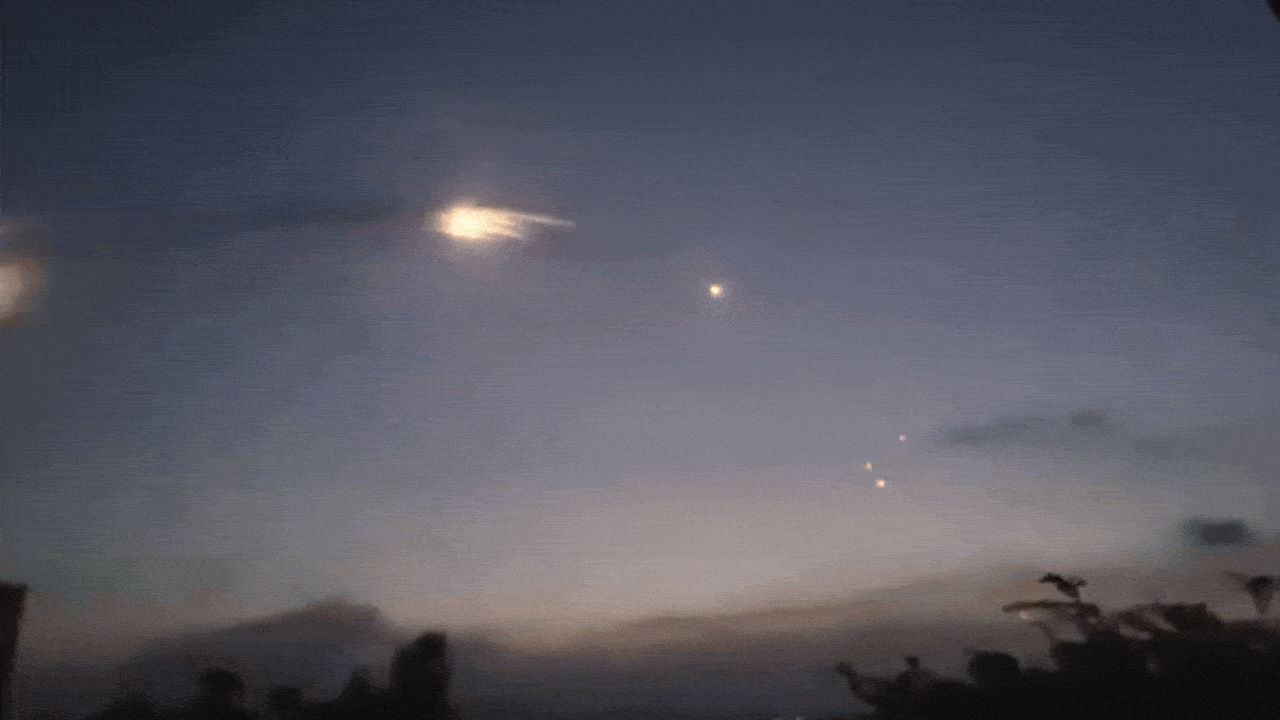Jerusalem: Israel launched a series of airstrikes in the south Lebanon early Sunday morning, describing it as a preemptive strike against Hezbollah The militant group claimed responsibility for launching hundreds of rockets and drones in retaliation for the killing of one of its top commanders last month. Nearly 100 Israeli warplanes attacked and destroyed thousands of Hezbollah rocket launchers, the Israel Defense Forces (IDF) said in a statement.
The intense exchange of fire has raised the risk of a full-scale war involving the United States, Iran and other militant groups in the region. It could also hamper efforts to achieve a ceasefire in Gaza, where Israel has been locked in conflict with the Palestinian group Hamas, an ally of Hezbollah, for more than a decade.
Here are 10 key events in this story:
1. The Israeli military said Hezbollah was preparing to launch a heavy barrage of rockets and missiles toward Israel. Shortly afterward, Hezbollah announced that it had attacked Israeli military positions in retaliation for the killing of Fouad Shukur, one of its founders, in an Israeli airstrike in Beirut last month.
2. Hezbollah claimed it had fired more than 320 Katyusha rockets at Israel, hitting 11 military targets. The group described this as “the first phase” of its response to the killing of Fuad Shukr but indicated that full retaliation “would take some time.”
3. The attacks came as Egypt hosted a new round of talks aimed at ending the war between Israel and Hamas. Hezbollah said it would stop fighting if a ceasefire was reached in Gaza. Iran, which supports Hezbollah, also backs militants in Syria, Iraq and Yemen who could be drawn into a wider conflict.
4. Israeli Prime Minister Benjamin Netanyahu On Sunday, Israeli President Abdullah Abdullah said Israel would take all necessary measures to defend itself after Iran-backed Hezbollah launched hundreds of rockets and drones at Israel in retaliation for the killing of one of its top commanders. “We are determined to do everything possible to defend our country, return the residents of the north safely to their homes and continue to uphold a simple rule: whoever harms us, we harm them,” he said in a statement.
5. Israel’s Defense Minister Yoav Gallant declared a state of emergency, leading to the temporary suspension of flights to and from Tel Aviv’s Ben Gurion Airport for about 90 minutes. The Israeli military issued civil defense guidelines for areas from central Israel to the north, restricting large gatherings but allowing people to go to work as long as they could quickly access bomb shelters.
6. Hezbollah later announced the completion of what it described as the first phase of its retaliatory strikes, indicating that it was preparing to launch further attacks deeper into Israel. The group claimed that all the drones it deployed hit their intended targets, though it did not specify the number of drones used. Hezbollah listed 11 bases, barracks and military positions in northern Israel and the Israeli-occupied Golan Heights that it said were targeted.
7. In the United States, National Security Council spokesman Sean Savett said President Joe Biden is “closely monitoring developments in Israel and Lebanon.” Savett noted that senior U.S. officials have been in constant communication with their Israeli counterparts at the president’s direction. “We will continue to support Israel’s right to defend itself and continue to work for regional stability,” he said.
8. Hezbollah began attacking Israel almost immediately after the conflict in Gaza began, following Hamas’s attack on Israel on October 7. Since then, Israel and Hezbollah have been exchanging fire almost daily, causing the displacement of tens of thousands of people on both sides of the border. Until Sunday, both sides had taken steps to avoid a full-scale war.
9. Israel has vowed a devastating response if a full-scale war breaks out, likely targeting essential civilian infrastructure, particularly in southern Beirut and southern Lebanon, where Hezbollah’s main bases are located. A conflict of that scale could displace hundreds of thousands of people on both sides.
10. Hezbollah is a close ally of Iran, which has also threatened to retaliate for the death of Hamas leader Ismail Haniyeh in an explosion in Tehran last month. The incident was largely blamed on Israel, although the latter country has not confirmed its involvement.
(With contributions from AP and Reuters)
Disclaimer:
The information contained in this post is for general information purposes only. We make no representations or warranties of any kind, express or implied, about the completeness, accuracy, reliability, suitability or availability with respect to the website or the information, products, services, or related graphics contained on the post for any purpose.
We respect the intellectual property rights of content creators. If you are the owner of any material featured on our website and have concerns about its use, please contact us. We are committed to addressing any copyright issues promptly and will remove any material within 2 days of receiving a request from the rightful owner.

